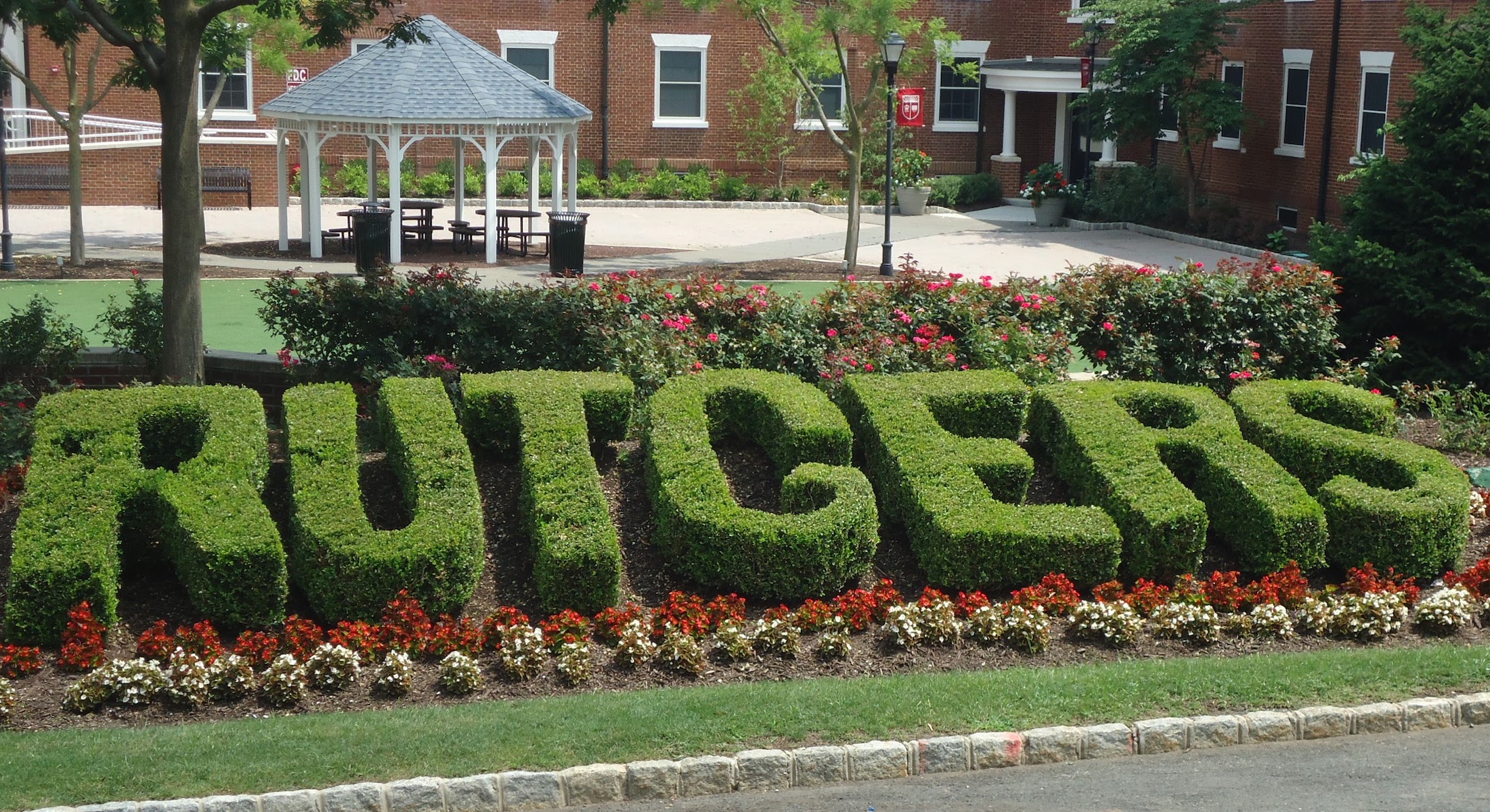Rutgers University suspends Students for Justice in Palestine amid further campus uproar over Israel
The suspension comes as universities face increased scrutiny to police antisemitic campus activity

A hedge outside Rutgers University in New Brunswick, New Jersey, July 30, 2016. (Tomwsulcer via Creative Commons)
(JTA) – Rutgers University suspended its campus chapter of Students for Justice in Palestine Monday, joining a growing number of American universities that have restricted the pro-Palestinian group’s operations as campus activism has spiked surrounding the Israel-Hamas war.
The chapter has two business days to appeal the “interim” suspension. The university did not say how long the suspension would last if upheld.
A dean’s letter to the group stated that it had violated several university policies, including those forbidding “disruptive or disorderly conduct,” failure to comply with university directives, improper behavior by campus guests, and “inappropriate use of space.” It referenced student complaints that members of SJP had disrupted “classes, a program, meals, and students studying.”
The letter also noted “allegations of vandalism” at the business school that corresponded with the group’s programming; a recent Instagram post from the group stated that SJP was “occupying the business school.” Neither the letter nor a university spokesperson elaborated further on the particulars of the incidents that led to the group’s suspension, but a Nov. 30 open letter from local Jewish federation CEO Dov Ben-Shimon said that Rutgers SJP and other student groups “have called Hamas’ massacre of Jews in Israel ‘justified’” and added, “Their actions against Jewish students on campus have moved far beyond microaggressions.”
SJP, which has chapters at universities across the country, has become a lightning rod in the campus debates over Israel and Gaza. Its national network has issued positive statements about the Hamas attacks while individual university chapters have used rhetoric that critics say is antisemitic. Shortly after Hamas’ Oct. 7 attack on Israel, dozens of Jewish groups demanded that universities pull their funding for the group’s activities.
Several schools have gone further, banning SJP chapters entirely. Florida Gov. Ron DeSantis, a Republican, pushed to prohibit the group from his state’s public universities, leading to a lawsuit from the group’s University of Florida chapter, though a handful of affiliates reportedly remain. Private schools Brandeis University, George Washington University and Columbia University have also suspended their chapters, with the latter also suspending Jewish anti-Zionist group Jewish Voice for Peace.
On campuses where the group has not been formally suspended, students have been disciplined for their role in disruptive anti-Israel activities staged by various SJP chapters. On Monday at the University of Rochester in New York, a student was arrested after allegedly attacking a campus police officer during what the university deemed an “unauthorized” SJP event.
Rutgers, New Jersey’s flagship public university, which has a large Jewish population, suspended the student group less than a week after three presidents of elite private universities were roundly criticized for congressional testimony at which they hedged on the question of whether “calls for the genocide of Jews” violated policy.
Michelle Jefferson, associate dean of students and director of student conduct at Rutgers’ New Brunswick campus, wrote in her letter to SJP that “there is a reasonable basis to conclude that the continued activities by the student organization pose a substantial and immediate threat to the safety and well-being of others, or the suspension of organizational activities is needed to maintain preservation of the University.”
In a statement, Rutgers said its suspension was “in accordance with the university’s student organization policies and procedures” but did not provide further information about what led to it.
A separate letter from the school’s chancellor Francine Conway, referencing tensions over “the ongoing war between Israel and Hamas,” noted, “While Rutgers–New Brunswick is a public institution that protects and values free speech and an open exchange of ideas, this exchange cannot come at the expense of individual and campus safety.”
A request for comment sent to the Rutgers SJP chapter’s email address was not immediately returned. The chapter’s Instagram page announced plans for a “Study-In” protest on the New Brunswick campus Monday to push for a ceasefire in the Gaza Strip during finals week. It also included calls for Rutgers to divest from partnerships with Israeli institutions.
Additional posts by the group have included the phrase “From the river to the sea,” which many Jewish groups interpret as a call for violence against Jews. That phrase was at the heart of last week’s congressional hearing on campus antisemitism.
A statement the chapter posted days after the Oct. 7 attacks criticized Rutgers’ president for expressing sympathy with Israeli victims, saying he “explicitly took a pro-Israel stance,” used “Islamophobic rhetoric” and “made implied threats” against Palestinians on campus. It added that a Rutgers Hillel vigil was “mourning Israeli settler deaths,” using language that implies that massacre of Israeli communities within the country’s recognized borders targeted settlers.
This article originally appeared on JTA.org.



















